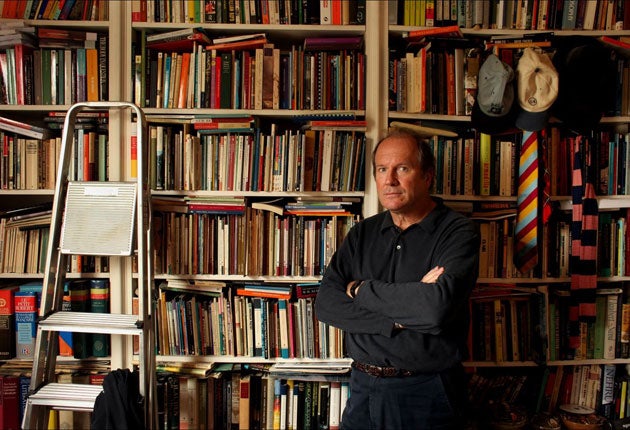I don't think anything could ruin my love for novels more than product placement
Where else will we be able to retreat from the stress of everyday capitalism if writers are paid to include certain items in their books?

Your support helps us to tell the story
From reproductive rights to climate change to Big Tech, The Independent is on the ground when the story is developing. Whether it's investigating the financials of Elon Musk's pro-Trump PAC or producing our latest documentary, 'The A Word', which shines a light on the American women fighting for reproductive rights, we know how important it is to parse out the facts from the messaging.
At such a critical moment in US history, we need reporters on the ground. Your donation allows us to keep sending journalists to speak to both sides of the story.
The Independent is trusted by Americans across the entire political spectrum. And unlike many other quality news outlets, we choose not to lock Americans out of our reporting and analysis with paywalls. We believe quality journalism should be available to everyone, paid for by those who can afford it.
Your support makes all the difference.The author William Boyd has featured in the news recently because of his latest novella, The Vanishing Game. Not in a we’re-all-so-excited-we-can’t-stop-talking-about-it-before-we’ve-even-read-it way, but because he’s admitted the book contains product placement, where he gives his character a Land Rover Defender to drive.
Admitted probably isn’t the right word. He's pretty much bragged about it, saying he found it to be an "intriguing" job, and that he didn’t "really care" how his decision was received. Well why would he, after being paid a six-figure sum from Land Rover?
I’m not anti-advertising. Advertising can be creative, funny, insightful and entertaining. It can raise awareness, start conversations and perfectly reflect a point in time. I’m just anti-advertising-in-the-books-I-read. I like chocolate, but I wouldn’t want it creeping up in my tuna sandwich at lunchtime.
Imagine a Haruki Murakami novel with product placement. A character looks through a band’s dusty records, putting one into a record player and listening to it as he eats sushi and phones his girlfriend. Now imagine that Murakami was paid by the band’s management team, a phone company and a sushi brand.
The scene instantly goes from that special, bizarre corner of a reader’s imagination where Murakami has a monopoly, and is slammed down onto the cold, hard pavement of Real Life. (Just to be clear: I wasn’t paid by Monopoly to write this.)
It ruins it. Murakami’s world wouldn’t survive in the real world, where advertising exists. No books would. They tap into another part of our brain, a place that product placement is in danger of ruining.
It’s one thing on the side of buses, on the Tube and dotted along streets, but it’s not okay for advertising to take up valuable bits of your brain during the precious and rare downtime we reserve to feed our minds, relax and escape the harsh realities of life.
Boyd compares his product placement to writing a Batman film: “If I was approached to write a Batman movie I would assume it would have to feature Batman. There's really no difference in this case." I think there’s a tiny difference.
Apart from in books, there’s nowhere left for us to stimulate our minds away from the influence of money. The cinema doesn’t only have a prelude of ads as long as the film itself, but even the films themselves are rife with product placement these days. I can’t even watch Made in Chelsea without being badly sold things (and this really upsets me).
To Boyd and any other authors who don’t think this is a worrying development: when we’re reading, this is the only time we don’t want, or expect, to be sold to. In our exhausting existence where everyone wants our money, we can relax knowing that authors just want to lure us into their world for a while. Now, spread the world quickly, before our shelves are lined with books like Lord of the Filofax, MiddleMars, and Goodnight Mister Tums.
Join our commenting forum
Join thought-provoking conversations, follow other Independent readers and see their replies
Comments